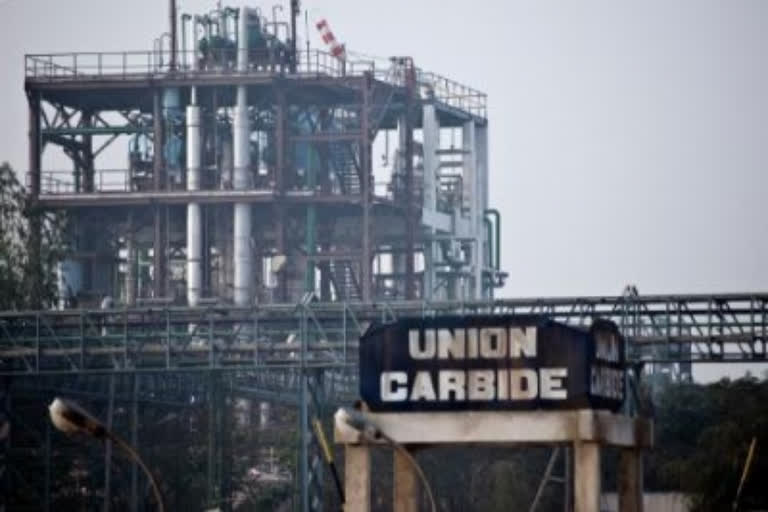New Delhi: In a major decision, the Supreme Court threw out the curative petition seeking additional compensation from Union Carbide Corporation by reopening the settlement in the Bhopal Gas Tragedy Case. Justice S K Kaul pronounced the judgement on behalf of the five member Bench constituted to look into the matter.
The court observed that reopening the issue will open a Pandora's box. "The method to impose a greater liability on UCC is not warranted. We are disappointed in the Union for not having addressed this. Nearly 6 times compensation has been disbursed to the victims compared to the pro rata," the Court noted.
Centre should use Rs 50 crores lying with RBI to address the needs of the claimants in the Bhopal gas tragedy case. If it is reopened, then it will only work in favour of the UCC by opening a Pandora's box and will be to the detriment of the claimants, the Bench observed.
The court said the settlement can be set aside only on the basis of fraud... that the central government has not contended. It also said that it is dissatisfied with the centre for raking up the issue after two decades. "We are of the view that curative petition can not be entertained," the court held.
The Centre was looking for an additional Rs 7,844 crore from Union Carbide Corporation's successor firms for the victims of the 1984 Bhopal gas tragedy. The tragedy claimed the lives of over 3,000 people and resulted in significant environmental damage.
The plea sought to extend higher compensation to the victims of the tragedy. The five-judge constitution bench led by SK Kaul reserved its verdict on the Centre's curative plea on Jan. 12. The successor firms of UCC had submitted the court that the depreciation of the rupee since 1989, when a settlement was arrived at between the company and the Centre, cannot be a ground to seek a "top-up" of compensation for the victims of the Bhopal gas tragedy.
The firms also pointed out that the Government of India never suggested at the time of the settlement that it was inadequate. Senior advocate Harish Salve, representing the UCC successor firms, submitted that there are several affidavits filed starting from 1995 and ending as late as 2011 where the Union of India had opposed every single attempt to suggest that the settlement (of 1989) was inadequate.
During the hearing, the top court had told the Centre that it cannot act like a "knight in shining armour" and decide the curative plea seeking additional funds from UCC as a civil suit. The court had asked the government to "dip into its own pocket" to provide enhanced compensation.
The Centre wants another Rs 7,844 crore from the UCC's successor firms over and above the USD 470 million (Rs 715 crore) it got from the American company as part of the settlement in 1989. A curative petition is the last resort for a plaintiff after an adverse judgement has been delivered, and the plea for its review is rejected. The Centre had not filed a review petition for rescinding the settlement, which it now seeks to be enhanced. The Centre has been insisting that the actual damage caused to human lives and the environment could not be assessed properly at the time of the settlement in 1989.
On Jan. 10, the top court had questioned the Centre for pursuing its curative plea, stating that the government cannot reopen a settlement that was reached with the company after over 30 years. The UCC, now owned by Dow Chemicals, gave compensation of USD 470 million (Rs 715 crore at the time of settlement in 1989) after the toxic methyl isocyanate gas leak from the Union Carbide factory on the intervening night of Dec. 2 and 3, 1984, killing over 3,000 people and affecting 1.02 lakh more.
The survivors of the Bhopal Gas tragedy have been struggling to get adequate compensation and proper medical treatment for ailments for long. The Centre had filed the curative petition in the top court in December 2010 for enhanced compensation. In a verdict a Bhopal Court had sentenced seven executives of Union Carbide India Limited (UCIL) to two years of imprisonment on June 7, 2010.
The then UCC chairman Warren Anderson was the prime accused in the case but did not appear for the trial. On Feb. 1, 1992, the Bhopal CJM court declared him an absconder. The courts in Bhopal had issued non-bailable warrants against Anderson twice in 1992 and 2009 before his death in September 2014.



